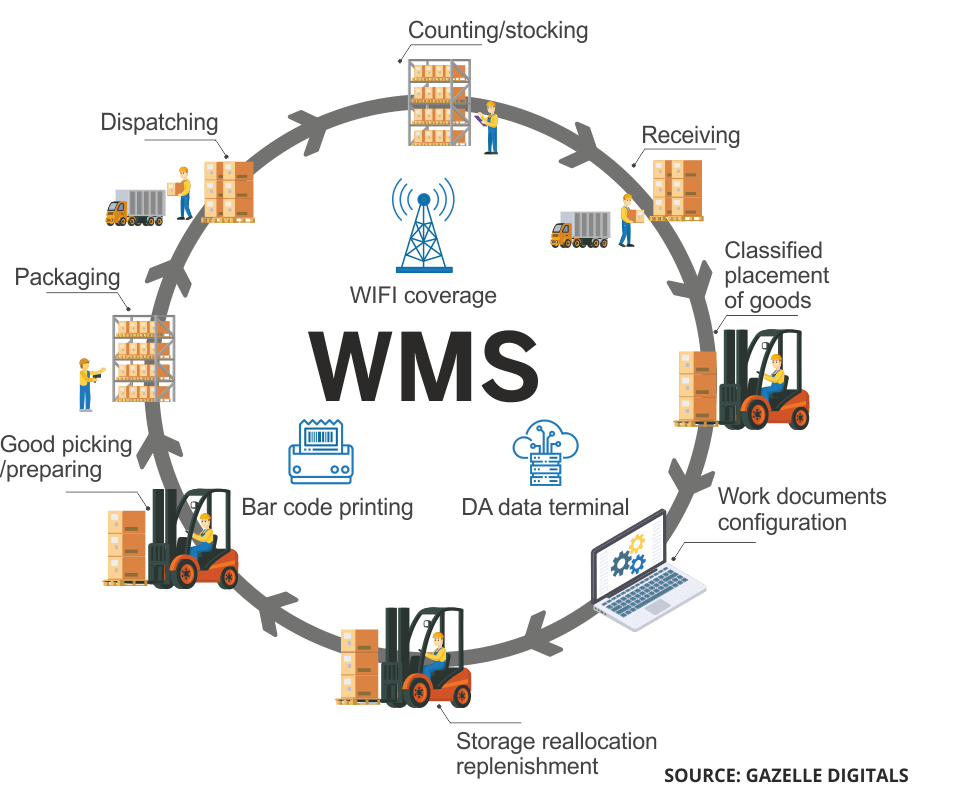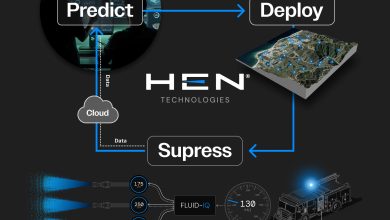
Transport management takes the most responsibility for the cogency and competence of logistic operations in our current world. For organizations that seek cost reduction, improve the service of their clients, and optimize their transport flows, TMS systems have been vital tools that are only possible with. This article will focus on the logistics companies’ operations as the individual transport management system modules‘ design functions and reality and implications will be evaluated.
Transportation Management System, abbreviated as TMS, is a software category that aids both in the planning and executing the logistics of the movement of goods. The system is provided to all the supply chain members, including the manufacturers, distributors, and 3PLs.
The most desired feature of a TMS is its control tower function, as illustrated below. Upon an overview of the entire shipping process, a TMS control tower uses API or EDI technology to grab real-time data about goods, supplying users with the most updated information right from the manufacturer through the distribution center to delivery and finally to the customer.
Such data ultimately becomes an analysis tool for your supply chain performance, financial position, and customer service issues. This is where your optimization process starts.
General characteristics
Transportation Management Systems (TMS) are developed to help intelligently plan, monitor and optimize the transport of raw materials, goods, and services. TMS can significantly cut transportation expenses (which often make up 30-50% of logistics costs overall). By integrating with WMS and ERP systems, TMS can enhance visibility across the supply chain and delivery and provide more precise monitoring.
Nevertheless, many challenges must be dealt with in the case of TMS implementation, among them a dependence on high technology and staff training. On top of this, the complication of burdening already existing IT systems is a deterrent for some companies.
Generally speaking, TMS reduces related costs. As a very important component of a modern logistic specialist toolbox, it can decrease the total cost of ownership and increase customer turnover.
Route Planning Module
Transport Management Systems are essential because they allow you to optimize routes, stop at the least time, and consume the least fuel. The Route Planning module is a wonderful part of Transport Management Systems. Given path variations, vehicle capabilities, and per-unit driver shifts, this module covers a huge area of route options.
Cargo Tracking Module
A decisive part of supply chain management, the cargo tracking module in a transport management system empowers companies to track their goods consistently. For businesses and individuals needing to move vehicles, such as those looking for tips for Florida Car Shipping, this system is invaluable. It can be coupled with other sensors, including a GPS tracking system, to provide detailed data on the cargo’s location and expected delivery time. Thus, there is visibility in ensuring a high level of customer support and that the risk of late delivery is minimized.
Warehouse Management Module
The data warehouse management module Transport Management Systems is a strong technology for standardizing warehouse efficiency. It automatically executes the dual functions of receipt, storage, picking, and dispatch to actualize inventory accuracy and ensure the optimal use of warehouse space. You can integrate and synchronize your warehouse activities with other logistics links using integration with enterprise resource planning (ERP) systems and other transportation modules. This leads to savings and increases overall productivity.
Order Management Module
All processes, from placing an order to delivering it to the user to the end, are managed on the Order Management module by a Transportation Management System, which has superb centralized management of all aspects of an order process. It eliminates the work necessary for receiving, sorting, packing, shipping, and delivering orders. Properly utilizing this tool will improve order accuracy, shorten processing time, and increase customer satisfaction through timely deliveries.
Analytics and reporting module
The analytics and reporting module is as important as a window to the visibility and control of logistics operations. It handles, analyses, and maps data from all moving parts of transport services, thus supplying management with the information required for informed decisions. This module shows only the main performance indicators, e.g., delivery time, transport costs, labor efficiency, and other key features.
Fleet Management module
This technology enables management companies to seamlessly and efficiently control all vehicles. These features also cater to condition monitoring and maintenance scheduling, fuel management, and live vehicle tracking. Investigating this component could be the solution to minimizing fleet maintenance costs and enhancing accessibility and productivity.
Integration with other systems
Reliable transport management systems have to integrate into other organizational IT systems to be effective. Such solutions include warehouse management systems, enterprise resource planning systems, or other technological support. This functionality is the key to connectivity for the comprehensive management of logistics. It creates accountability and ensures the data can be shared promptly between different departments and processes.
Conclusion
New modes of transport management systems are on the horizon of technology, where innovation and integration have become the order of the day due to rapid technological advancements. Adopting artificial intelligence algorithms and machine learning will improve these systems’ autonomy and accuracy. The modules can adjust to the situations and shift logistics routes in a timely manner, considering different variables.
There is no doubt that the transport management system is substantial in recent logistics. They make transport management easier, reduce costs, and boost delivery efficiency. Such systems are built with the latest technologies in mind and combined with other systems. Their future is full automation of processes and optimal use of available resources to address what is currently happening.







